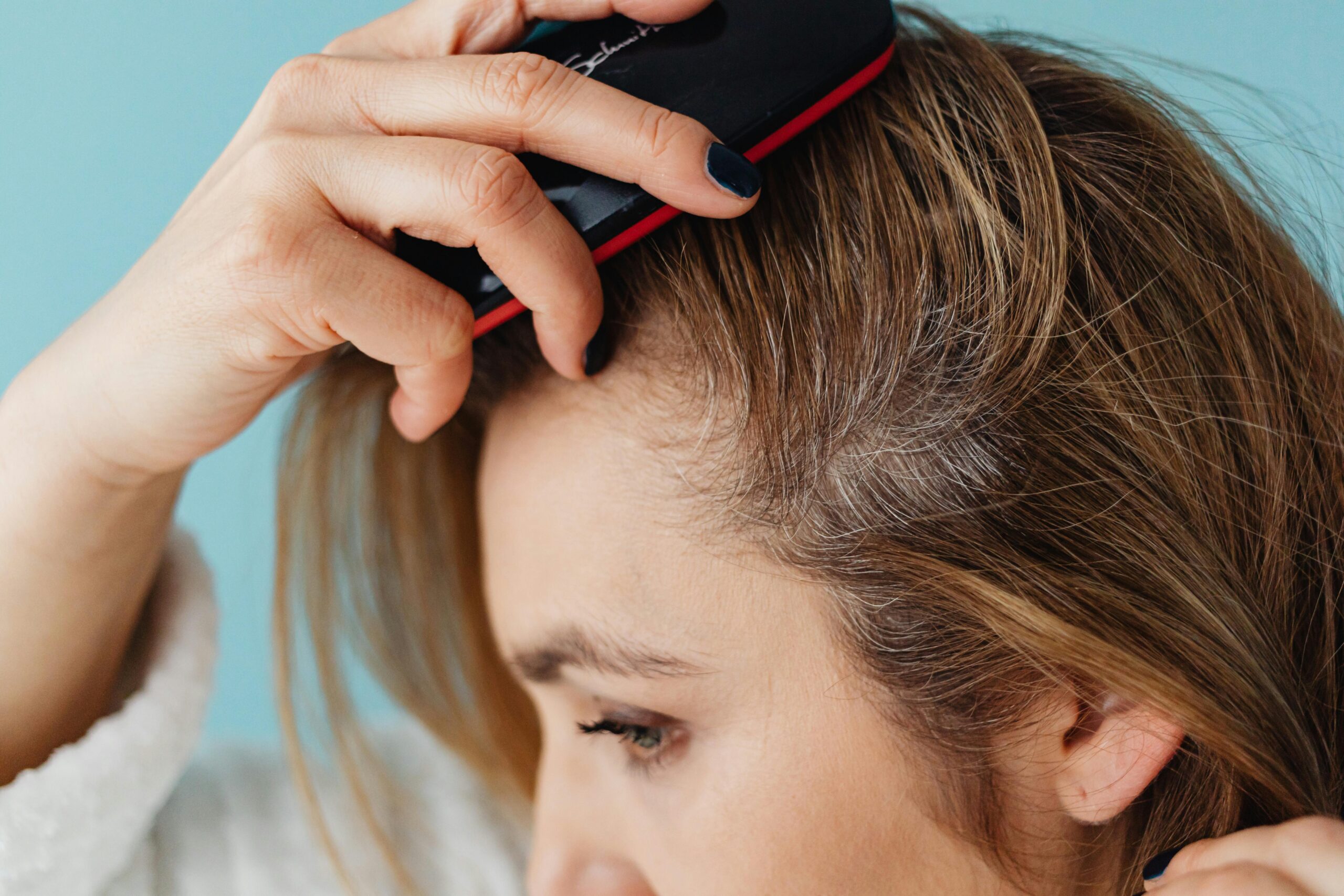Scalp acne can be frustrating and uncomfortable, often leading to itching, pain, and irritation. It’s caused by clogged hair follicles, excess oil, and bacterial buildup, just like facial acne. However, treating it requires unique approaches tailored to the scalp’s needs. Let’s explore effective treatments and preventative measures to help you achieve a healthier, breakout-free scalp.
What Causes Scalp Acne?
Scalp acne develops when hair follicles become clogged with oil, dead skin cells, or dirt. This creates the perfect environment for bacteria to thrive, leading to inflamed pimples or pustules. Factors contributing to scalp acne include:
- Excess oil production
- Poor hygiene or infrequent hair washing
- Product buildup from hair care products
- Hormonal changes
- Stress and poor diet
Understanding these triggers is the first step toward addressing scalp acne effectively.
How to Treat Scalp Acne
Managing scalp acne involves a combination of targeted treatments and lifestyle adjustments. Here are practical steps to help reduce breakouts:
1. Use a Medicated Shampoo
Shampoos containing ingredients like salicylic acid, tea tree oil, or ketoconazole are highly effective for treating scalp acne. These ingredients help exfoliate the scalp, reduce oil buildup, and combat bacterial growth.
2. Maintain Proper Scalp Hygiene
Wash your hair regularly to remove sweat, dirt, and product buildup. Choose a gentle, sulfate-free shampoo that won’t strip your scalp of its natural oils.
3. Avoid Heavy Hair Products
Heavy gels, sprays, or oils can clog hair follicles and worsen acne. Opt for lightweight, non-comedogenic products that won’t weigh your hair down or cause buildup.
4. Incorporate Scalp Exfoliation
Exfoliate your scalp once or twice a week using a scalp scrub or a soft-bristled brush. This removes dead skin cells and prevents clogged follicles.
5. Apply Topical Treatments
For severe cases, topical treatments like benzoyl peroxide or sulfur-based creams can reduce inflammation and kill acne-causing bacteria. Apply these products sparingly to avoid irritation.
6. Stay Hydrated and Eat a Balanced Diet
Proper hydration and a diet rich in vitamins and antioxidants promote overall skin health. Limit sugary or greasy foods, as they can contribute to acne flare-ups.
7. Consult a Dermatologist
If over-the-counter treatments don’t work, consult a dermatologist. They may recommend prescription-strength medications or in-office treatments like corticosteroid injections.
Preventing Scalp Acne
Preventing scalp acne involves creating a healthy scalp environment that minimizes the risk of breakouts. Here are some preventative tips:
Keep Hair Clean and Dry
Sweat and moisture can contribute to acne, especially after exercise. Wash your hair after sweating and ensure your scalp dries thoroughly.
Change Pillowcases Regularly
Pillowcases can harbor bacteria and oils from your hair and skin. Change them frequently to avoid transferring these to your scalp.
Avoid Overwashing
While it’s essential to keep your scalp clean, overwashing can strip your scalp of natural oils, prompting it to produce even more oil. Find a washing schedule that works for your scalp’s needs.
Use Non-Comedogenic Hair Products
Choose hair care products labeled as non-comedogenic to avoid clogging your follicles. Avoid products with heavy silicones or oils.
Manage Stress Levels
Stress can trigger hormonal imbalances, leading to increased oil production and acne. Incorporate stress-management techniques like yoga, meditation, or regular exercise.
Conclusion
Scalp acne is manageable with the right treatments and preventative measures. From medicated shampoos to maintaining proper scalp hygiene, small changes can make a big difference. By understanding your scalp’s needs and addressing acne triggers, you can achieve a clean, healthy, and breakout-free scalp.
Frequently Asked Questions (FAQs)
1. Can scalp acne lead to hair loss?
Yes, severe scalp acne can lead to temporary hair loss if follicles become inflamed or infected. Treating acne promptly helps prevent this issue.
2. How long does it take for scalp acne to clear up?
With proper treatment, mild scalp acne can clear up within a few weeks. Severe cases may take longer and require professional intervention.
3. Are there natural remedies for scalp acne?
Yes, tea tree oil and apple cider vinegar can help. Dilute them before application to avoid irritation, and always test on a small area first.
4. Can hairstyling tools worsen scalp acne?
Yes, dirty combs, brushes, or hats can harbor bacteria and transfer it to your scalp. Clean these items regularly to reduce the risk of breakouts.
5. Is scalp acne the same as dandruff?
No, scalp acne and dandruff are different conditions. Dandruff involves flaky, itchy skin, while scalp acne is caused by clogged follicles and inflammation.



